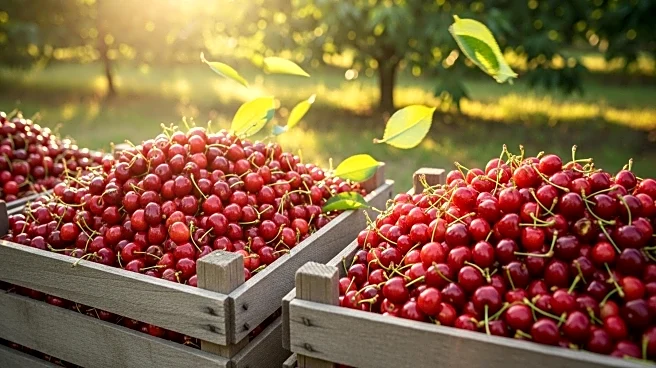What is the story about?
What's Happening?
The Pacific Northwest experienced a significant increase in cherry production this season, with high-quality fruit expected to benefit farmers. However, the market response was disappointing due to several factors, including a shortage of migrant workers and high grocery store prices. Tiffany Davis, business manager at K&K Land and Management, noted that while the cherries looked and tasted great, the market demand was not there. The Trump administration's immigration policies contributed to a labor shortage, as migrant workers were hesitant to travel north, affecting the harvest. Additionally, an oversupply of cherries and high retail prices led to reduced consumer demand, leaving farmers with potential losses.
Why It's Important?
The situation highlights the challenges faced by agricultural producers in balancing production with market demand. The oversupply of cherries and high retail prices have resulted in financial losses for farmers, impacting the agricultural economy in Oregon and Washington. This scenario underscores the importance of labor availability and market dynamics in the agricultural sector. Farmers are now considering ways to mitigate losses, which may include reducing acreage or altering business strategies. The broader economic implications include potential shifts in agricultural practices and the need for policy adjustments to support farmers.
What's Next?
Farmers are evaluating their options to cut losses, which may involve selling or leasing land. The industry is likely to see changes in how cherry production is managed, with potential impacts on local economies and employment. Stakeholders may push for policy changes to address labor shortages and market challenges. The situation may also prompt discussions on pricing strategies and consumer demand management in the agricultural sector.















